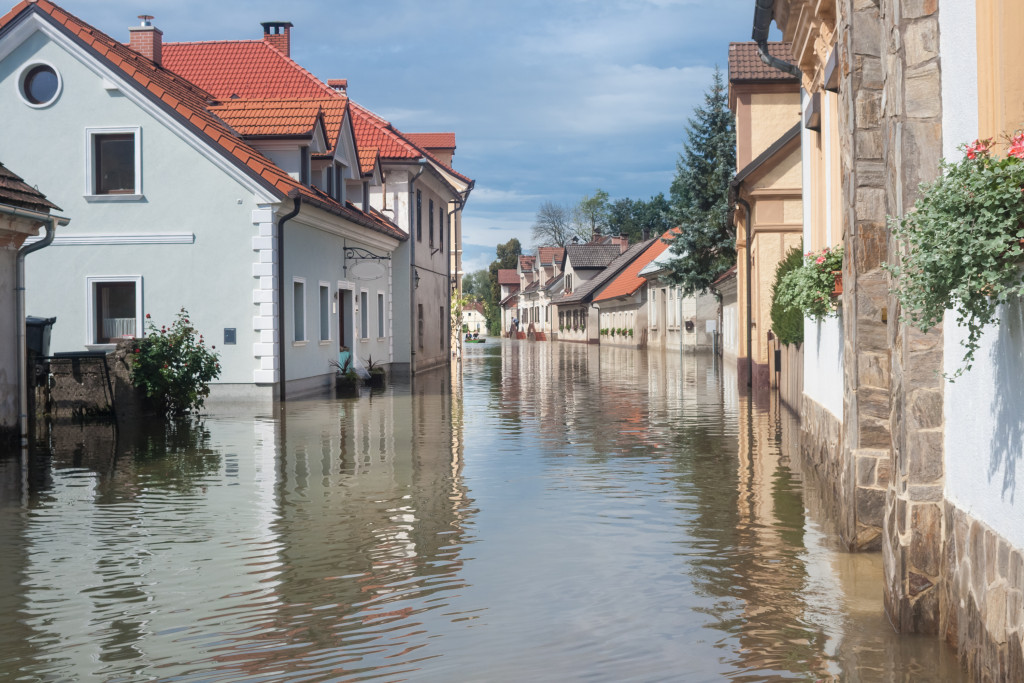- Clean your gutters and downspouts of debris to ensure they can channel water away from your home’s foundation.
- Install a sump pump in flood-prone areas to automatically pump out accumulated water during heavy rain storms.
- Secure any loose objects outside your home before a storm to prevent them from becoming projectiles.
- Install smoke detectors on every floor of your home and keep flammable materials away from heat sources.
Your home is your sanctuary, where you feel safe and secure. But it’s also exposed to different elements that could cause damage if not properly protected. Many factors can put your home at risk, from harsh weather conditions to natural disasters. In this article, you will learn how to keep your home safe and secure from the elements.
Protecting your home from water damage
Water damage is one of the most common problems that homeowners face. It can be caused by heavy rain, flooding, or even a leaky roof.
Water damage can have devastating effects on a home. The most obvious sign of water damage is a damp area, which can lead to the propagation of mold. Mold can cause major health issues, such as allergies and respiratory problems. In addition, it can also create structural damage to walls, floors, and ceilings. Water damage can also cause wood to deteriorate, which weakens the structure of the building and can lead to costly repairs or replacements. Additionally, water damage can compromise your home’s insulation, increasing energy costs due to heat loss.
Here are some steps you can take to protect your home from water damage:
1. Check your gutters and downspouts
Consider installing gutter guards to prevent leaves and other debris from clogging them.
2. Inspect your roof regularly
Check your roof for any damage, such as missing shingles. It is important to get roof restoration services as soon as you detect any problems to prevent water from seeping into your attic or walls, which will cause more severe water damage.

3. Install a pump
If you live in a flood-prone community, you should put a sump pump in your basement or crawl space. This device will automatically pump out any water that accumulates during heavy rain.
Protecting your home from wind damage
Wind can cause significant damage to your home, especially to outdoor furniture that is not properly secured. High winds can cause roofing materials to become loose and even blow off completely. Loose shingles and tiles can cause water damage from heavy rainfall, which can lead to mold, mildew growth, and structural damage. Strong winds can also lead to the cracking of windows or doors, as well as weaken foundations and even topple trees that may fall onto homes. In some cases, strong winds can even pick up objects from outside the home and hurl them into walls or windows with great force, resulting in costly repairs.
Here are a few ways you can protect your home from wind damage:
1. Secure loose objects
Remove any loose objects outside your home, such as patio furniture or toys, before a storm hits. These items could become projectiles that could damage windows or siding.
2. Reinforce windows and doors
Install storm shutters on windows and reinforce doors with deadbolts or slide bolts for added protection against high winds.
3. Trim trees near your home
Trim trees near your house regularly, so they don’t fall on it during a storm.
Protecting your home from fire damage
Fire damage to a home can have devastating and long-lasting effects. Fire causes not only physical damage but also psychological and economic damage for homeowners. Smoke and soot from the fire can cause permanent discoloration of walls, ceilings, and furniture. Additionally, smoke odor is difficult to remove as it penetrates porous surfaces such as wood, carpets, curtains, and upholstery. The intense heat generated by a fire also causes structural damage to a home’s foundation and walls by melting away mortar or warping timbers. In some cases, the entire structure may need to be replaced due to fire damage.
Here are some tips to mitigate the damage of a fire to your home:
1. Install smoke detectors
Install smoke detectors on every floor of your home and test them regularly to ensure they’re working properly.

2. Keep flammable materials away
Store flammable materials such as gasoline, propane tanks, or paint away from heat sources like furnaces or water heaters.
3. Have a fire extinguisher ready
Keep a fire extinguisher handy in case of emergency, especially in areas like the kitchen, where fires are more likely to occur.
It’s important to take the necessary steps to protect your home from water, wind, and fire damage. Taking preventive measures such as installing sump pumps for flood-prone areas, securing loose objects outside of the house before a storm hits, and having a fire extinguisher for emergencies are all effective ways to minimize property damage caused by the elements. By following these tips, you can keep your home safe and secure against any potential damages that nature’s unpredictable power may cause.

